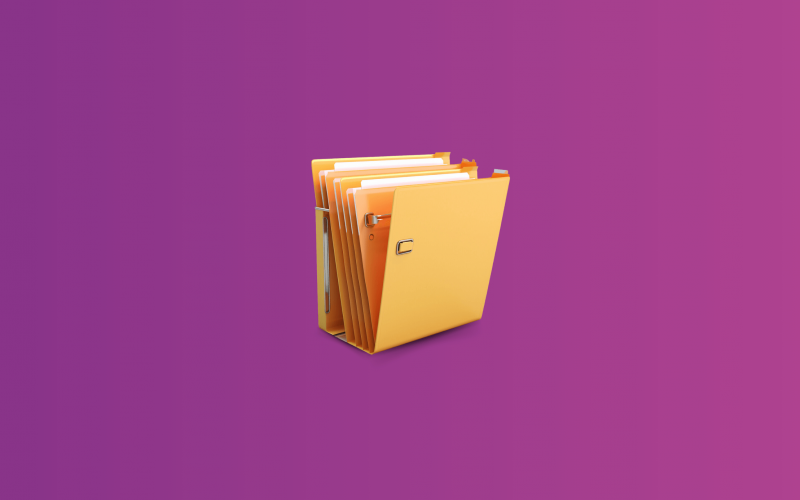Taxes are a part of life that most of us avoid thinking about unless we really must. And that time usually comes during tax season. But like most overwhelming tasks, they’re best tackled bit by bit. With some planning, you might even save yourself some money along the way.
In this article, we want to explore ways to get your taxes prepared. We’ll look at the cost of dues preparation by the CPA (Certified Public Accountant) for individuals and businesses, touch upon a wide variety of preparation options and explain how they can fit into your needs and budget.
Ready to streamline your financial processes? Discover how Synder can ease your accounting and tax preparation workflow with its automated solutions.
TL;DR
- CPAs and other highly qualified professionals can handle complex scenarios and represent you in front of the IRS for any tax-related matters.
- The average cost of preparation services varies widely based on the complexity of your situation, the professional’s experience, and the specific services required.
- Taxpayers have several options for preparing their documents, including doing it themselves, employing the help of special preparers, or utilizing IRS volunteers (for eligible individuals).
Contents:
1. What factors influence the cost of tax preparation by a CPA?
2. Standard pricing structures used by CPAs
3. How much does preparing specific tax forms cost?
4. Individual tax: What’s the average cost of tax preparation for an individual?
5. Business tax: What’s the average cost of tax preparation for a business?
6. The average cost of tax preparation for LLC
7. What are other options for filling your tax returns?
- Option 1. Prepare taxes yourself
- Option 2. Tax preparers
- Option 3. IRS volunteers for eligible taxpayers
What factors influence the cost of tax preparation by a CPA?
Determining how much you’ll pay for CPA tax preparation isn’t straightforward, as several factors come into play. While geographical location, filing status, and the number of forms are likely the first things that come to mind, there’s more to consider.
The following list isn’t exhaustive, but it covers the main factors that can decrease or increase the price.
1. The complexity of your tax situation
It comes as no surprise that the complexity of your tax situation will affect the fees. For an individual with 2 jobs and a recently bought house, there’ll be additional forms and schedules, such as itemized deductions for mortgage interest and property dues, and managing income from multiple sources. This all adds layers.
If we now look at a business owner with many income streams, employees, and significant expenses, the complexity increases even more, requiring detailed bookkeeping, payroll management, and business deductions, which can significantly raise the CPA fees.
Additional costs for extra services
When working with a CPA for tax preparation, you may need additional services beyond basic documents filing, and that comes with extra fees. These can include:
- State returns;
- Audit representation;
- Planning services;
- Consultation;
- Extensions and amended returns.
2. Organization of records
Organization of records is something to think about throughout the year, as you keep storing your individual or business documents. If your records are neatly organized, your expenses for tax preparation can be significantly lower as CPAs will spend less time sorting through and verifying your documents.
At Synder, we provide our CPA partner firms and businesses with financial management software that automates the recording of online transactions from marketplaces and payment getaways, so that when the tax season comes, all the sales, expenses, and taxes are allocated to the right accounts, ready for filing.
If you want to see how Synder can streamline your financial processes and make tax season stress-free, sign up for a 15-day free trial or book a seat at our Weekly Public Demo and check the difference it can make for your business!
3. CPA’s experience and reputation
A CPA with decades of experience, specialized knowledge in a certain area (like international law or non-profit organizations), and a notable reputation will typically charge more.
However, a less experienced CPA isn’t necessarily a bad choice. They might offer more competitive pricing while providing you with the services you need. It’s all about finding the right fit.
We’ll be looking at the actual prices in the later sections.
Learn more about the accounting landscape. Read our articles about the Big 4 and top accounting firms in the US.
Standard pricing structures used by CPAs
CPAs generally use one of 3 pricing structures (or a combination of them):
- A flat fee;
- An hourly rate;
- A per tax form fee.
Just like with any other service, it’s a good idea to get a quote upfront so you know what to expect.
Flat fee
A flat fee is a fixed price. CPAs often use them for more predictable work, like a standard tax return. It’s a straightforward method and you won’t get any surprises when the bill comes.
Hourly rate
In contrast, for an hourly rate, the final cost depends on how long it takes to get the job done. If your dues situation has a lot of nuances like a tax return for a business, a CPA might charge by the hour, since it’s harder to predict how long they’ll need to sort everything out.
Per form fees
Another common pricing structure is charging a set fee for each form that needs to be completed. For example, a CPA might charge one fee for a basic Form 1040, another for a Schedule C, and additional fees for other forms like Schedule D or Form 1120.
Some forms are easy, some are complex. So the price usually will reflect the amount of work needed to prepare them.
How much does preparing specific tax forms cost?
The National Society of Accountants (NSA) report is a great place to get reliable information regarding the costs associated with preparing specific forms by CPAs.
Here’s a summary of the costs for some common forms.
| Tax form | Average per form fee | Average hourly fee |
|---|---|---|
| Form 940 (Federal Unemployment) | $78 | $111.95 |
| Schedule SE (Self Employment Tax) | $41 | $148.12 |
| Schedule C (Business) | $192 | $149.95 |
| Schedule E (Rental) | $145 | $149.52 |
| Schedule EIC (Earned Income Credit) | $65 | $146.70 |
| Form 1040 (Not itemized) | $220 | $153.74 |
| Form 1040 (Itemized) | $323 | $161.34 |
| Form 709 (Gift Tax) | $421 | $178.29 |
| Form 1041 (Fiduciary) | $576 | $172.66 |
| Form 990 (Exempt Organization) | $735 | $171.48 |
| Form 706 (Estates) | $1289 | $188.63 |
| Form 1065 (Partnership) | $733 | $177.29 |
| Form 1120-S (S Corporation) | $903 | $179.81 |
| Form 1120 (C Corporation) | $913 | $181.57 |
N.B. Despite this report being the latest available source, things change fast and current prices may be somewhat higher.
If you want to know how to become a QuickBooks ProAdvisor read our article.
Individual tax: What’s the average cost of tax preparation for an individual?
Now let’s put this all into context. As we’ve shown above, many aspects can influence the final bill for CPA services. So here, we’ll look at the range of fees that you may pay for different situations, and we’ll start with individual tax preparation.
Simple individual return usually involves just a W-2 and a standard deduction. For this kind of tax return, the cost might be anywhere from $100 to $300.
If you have investments, own a rental property, or have significant itemized deductions the average costs can vary more widely. You might be looking at a range of $200 to $500 or more, depending on just how complex your situation is.
Business tax: What’s the average cost of tax preparation for a business?
Do you own a small business? There are many more parts to the whole picture—think inventory, expenses, employee payroll, etc. For small business owners, the cost of preparation process can typically range from $500 to $1,200 or more.
If you’re running a larger business or one with particularly complicated finances, it isn’t unusual for these fees to exceed $1,500, potentially going much higher depending on the specific needs of the business.
How does the structure of your business affect CPA preparation costs?
The fee structure usually follows the tax entity you have your business registered as. This means that sole proprietors will typically pay the least, followed by partnerships and S-corporations, with the C-corporations usually paying the most.
C-corporation is actually the only entity that deals with business tax in regard to income, while the remaining 3 types of businesses (sole proprietorships, partnerships, and S-corporations) have their obligations passed through their individual owners’ tax returns. This “pass-through” taxation means that the business income, deductions, and credits are reported on the owners’ personal returns, making their personal situation more complex and potentially increasing their individual preparation fees.
If you run a business and want to find out more practical advice on all matters of business and bookkeeping, book a seat at our Themed Webinars.
The average cost of tax preparation for LLC
You might be wondering why an LLC (Limited Liability Company) has disappeared from this list. It’s a very popular type of business, so why’s it not being discussed? Here, the situation looks rather different, LLC is not seen as a tax entity by the IRS. This means that any LLC in the US must file their tax return as one of the 4 types mentioned above (sole proprietorship, partnership, S-corporation, or C-corporation) depending on their specific classification criteria.
If you run your LLC as a sole proprietorship, you’ll follow the filing requirements for sole proprietors. If you have a business partner, then you’ll file as a partnership, completing the necessary forms for that entity. The same logic applies if you choose to classify your LLC as an S-corporation or C-corporation (you fill out the corresponding forms).
Learn how to file income tax returns with the filing preparation guide.
What are other options for filling your tax returns?
If you’re unsure whether a CPA is the right choice for you, let’s take a step back and look at the options you have. Since you’re responsible for filing your own taxes, the obligation falls squarely on your shoulders. But you do have a choice as to how to approach it and what methods you want to use.
Option 1. Prepare taxes yourself
We’ll start with preparing and filing your taxes all by yourself. If your situation is straightforward, this can be manageable. A simple situation usually means:
- you’re employed in a single place of employment rather than running a business;
- you don’t have significant investments or rental properties;
- you haven’t experienced major life changes such as getting married, having children, buying a home, or getting an inheritance.
Here, the IRS provides you with several options to file your taxes:
- Paper filing: Still a viable solution but not recommended as it simply takes much longer for the IRS to process paper forms. Plus there’s usually a higher chance of error when doing forms manually.
- The IRS Free File program: This program is fully electronic and free of charge for taxpayers. The IRS, depending on your AGI or Adjusted Gross Income, gives you 2 services:
- If your AGI is $79,000 or less, you can use guided software from trusted IRS partners for federal and even some state taxes.
- The Free File Fillable Forms is the other solution. Here, there are no conditions, so all taxpayers can use them. These forms are essentially the e-versions of federal tax forms. With this option, however, you don’t get the state forms.*
- Tax preparation software: This is a popular option for those with relatively straightforward situations. Software like TurboTax, H&R Block, or TaxAct guides you through the process, asking questions to fill out your specific forms.
* Some states offer their own free filing programs for state taxes, which you can access through their respective Department of Revenue websites. However, there are usually some limitations and requirements attached to these free file state programs.
Option 2. Tax preparers
If you don’t want to do your taxes by yourself, you can employ a tax preparer. These professionals offer a wide range of skills, credentials, expertise, and varying rights to represent you before the IRS. This designation includes many different professionals:
- Accountants and CPAs;
- Bookkeepers;
- Enrolled agents (EAs);
- Tax attorneys;
- Financial advisors;
- Non-credentialed preparers.
The IRS provides a Directory of Federal Tax Return Preparers where you can search for the right professional based on their credentials and qualifications. Out of these, tax preparers with the highest level of representation rights and expertise are CPAs, EAs, and tax attorneys.
Option 3. IRS volunteers for eligible taxpayers
The IRS offers two volunteer programs, the Volunteer Income Tax Assistance (VITA) program and the Tax Counseling for the Elderly (TCE) program that are designed to provide free preparation services to eligible individuals. These programs aim to help low-income taxpayers, individuals with disabilities, those with limited English proficiency, and seniors.

Conclusion
Choosing the right tax preparation method and professional matters. It isn’t just about getting your taxes done; it’s about making sure they’re done correctly, efficiently, and in a way that you can afford.
A good CPA can be an excellent choice if your situation requires a high level of expertise. But ultimately, the key is to match your tax preparation choice with your specific needs, financial situation, and comfort level. So whether you opt for a CPA, another type of preparer, software, or doing it alone, make sure it’s the best fit for you and your circumstances.
Disclaimer
The information provided in this article is for general informational purposes only and doesn’t constitute professional advice. Tax laws and regulations are subject to change, and individual circumstances can vary. For personalized assistance and advice, please consult a tax professional.
Share your experience
Have you used CPA services, preparation software, or another method to file your taxes? Share your experiences and any tips in the comments section below—we’d love to hear from you!











.png)
I like that you talked about firms that will be able to offer in-person income tax preparation services which are actually more affordable and suitable for those with moderately complex situations. I can imagine how helpful this piece of information would be for anyone who is a professional, self-employed, or with a business. In my opinion, getting help from an expert will be for your own benefit because you can focus on other things that you understand and do while they handle that aspect that you might not be trained for.
Hi Mia, thank you for your insightful feedback! We’re glad that you found the discussion on affordable in-person income tax preparation services useful. You’re absolutely right – seeking assistance from tax experts can be incredibly beneficial. It not only ensures accuracy and compliance with complex tax regulations but also allows individuals to focus on their core activities and strengths. If you have any more thoughts or questions on the topic, feel free to share! Your input adds great value to the conversation.
CPAs can help you and your business out when tax season comes around. Knowing the average cost of a CPA’s tax preparation work will help you make a well-sounded decision. Thanks for sharing.